There are five UNESCO World Heritage sites on the
Peloponnese Peninsula and I had tentatively planned to go to the last two of
them on my last day with John. I had planned for it to be a long day with an
early start, but then I looked up drive times to the two sites and also back to
Athens and realized the full itinerary would not be feasible. One of those two sites, the Temple of Apollo
Epikourios at Bessae, sais to be one of the best preserved and intact ancient
Greek temples is located on a plateau at over 3,000 feet elevation. It sounds like the roads to it are
slow-going, even for Greece.
So we decided to concentrate solely on the site of Ancient
Olympia before returning to the Athens area. Located on the far western side of
the Peloponnese Peninsula, Olympia is best known as the place where the original
Olympic games took place every four years for more than a millennium from when
they were first established in 776 B.C. until they were abolished by Emperor
Theodosius in 393 A.D. But Olympia was
much more to ancient Greece than just the spot where many thousands of athletes
gathered and athletic competitions took place every four years.
Olympia was also the Mecca of the ancient
Greek religion, the location of its greatest sanctuary, and one of the most
important places of worship. The
enormous statue of Zeus in the Temple of Zeus at Olympia was considered one of
the seven wonders of the ancient world.
Unfortunately, due to a combination of earthquakes over the
years and destruction ordered by Roman Emperor Theodosius II, little remains of
one of the most splendid religious centers of ancient Greece. You just have to imagine as you walk around
the tree shaded lanes between the foundations and rubble of temples, palaestra,
gymnasiums, and other buildings.
Olympia’s site archaeological museum is considered one of
the best in Greece and contains many of the artifacts there were found on site,
including statuary from the pediments of the great Temple of Zeus. But the statue of Zeus that was once one of
the wonders of the world is nowhere to be found. I found myself enjoying the museum at least
as much as the actual archaeological site.
I am sure the approximately 100*F weather (38*C) had contributed to
that.
From Olympia I had planned to drive directly across the
peninsula on what looked from my map like a significant road. The problem was I couldn’t find how to get to
it in Olympia. I asked for directions
from a man in town, one who seemed astounded that I was traveling without any
kind of GPS devices. He insisted the road across the mountains through the
center of the peninsula would take us many extra hours to get back to Athens –
that we should backtrack south along the west coast and then head east to meet
the main Athens to Kalamata tollway. It
was definitely fast-going once we were on the toll expressway, although is
seemed like there was a toll booth every 25 miles or so. By nightfall we were back at the dumpy motel
we stayed at the first night I picked John up at the airport.

 Olympia, Greece
Olympia, Greece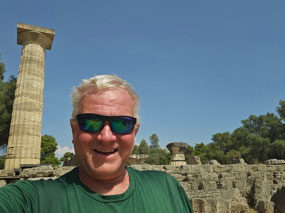
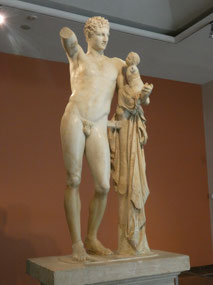


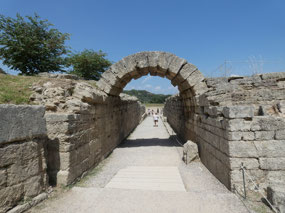
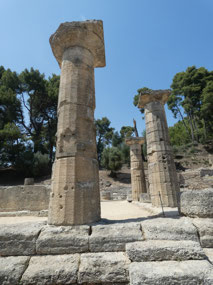
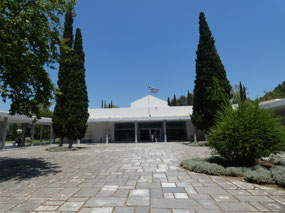
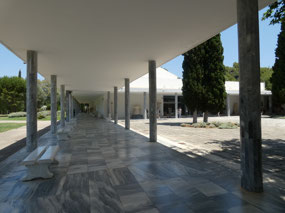
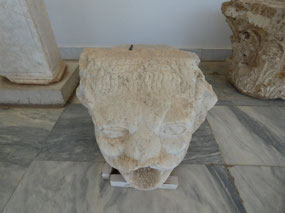
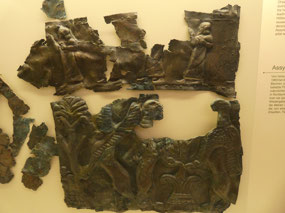
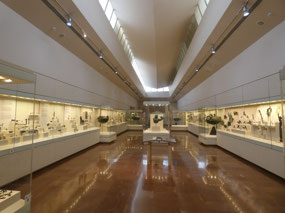
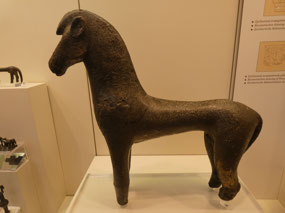
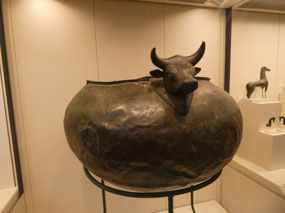
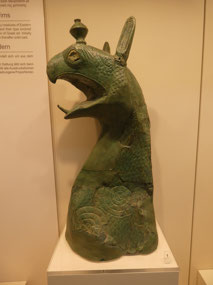
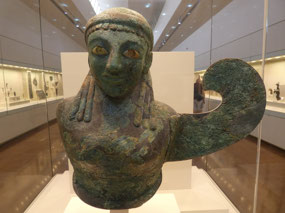
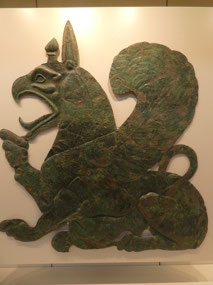
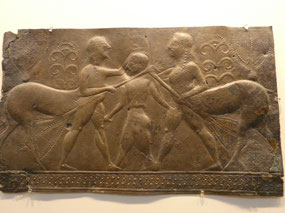
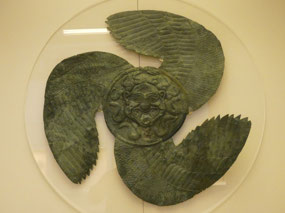
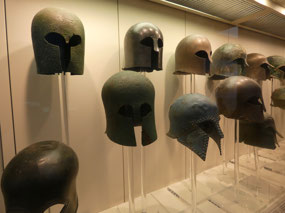
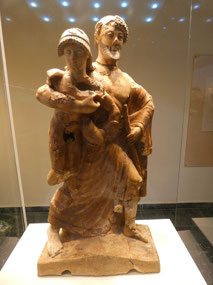
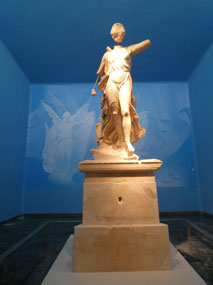
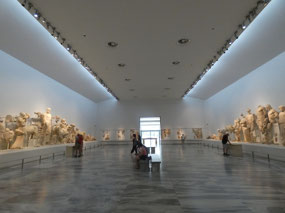
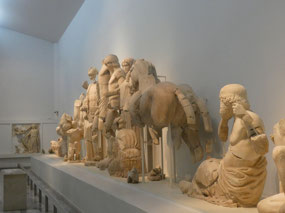
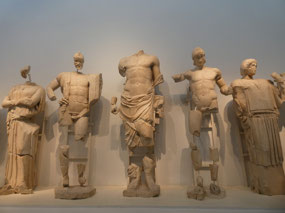
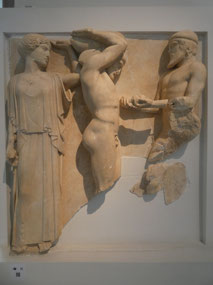
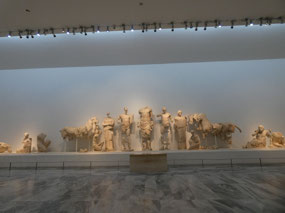
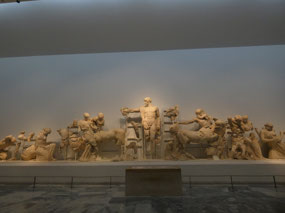
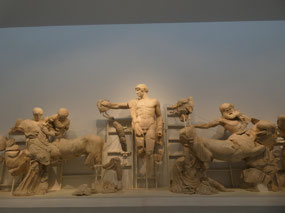
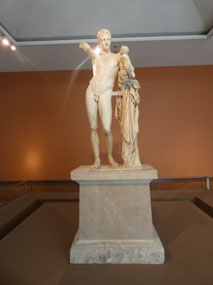
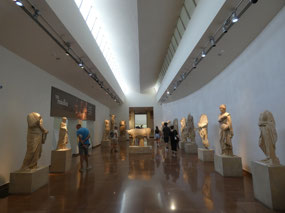

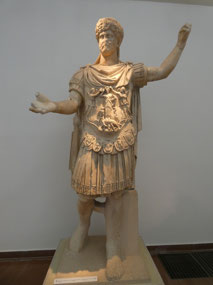
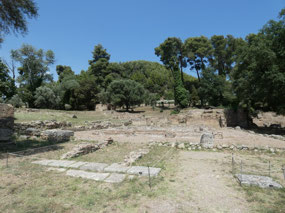
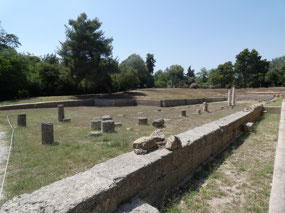
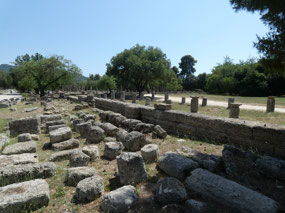
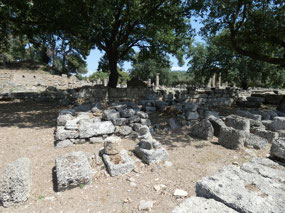
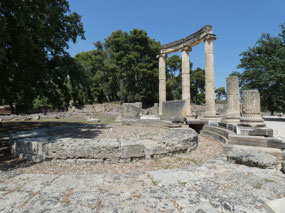
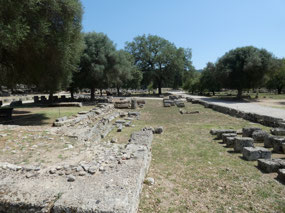
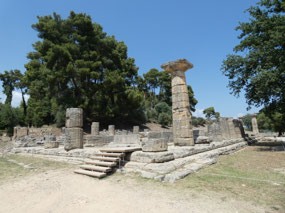
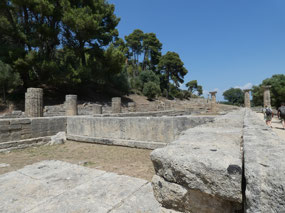
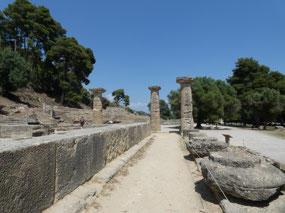
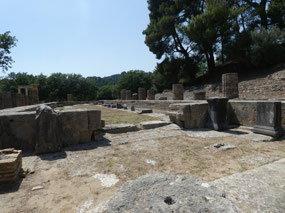
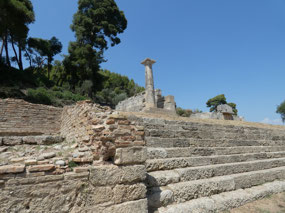
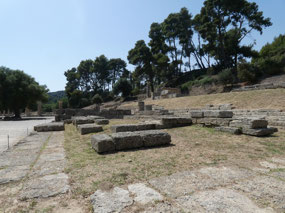
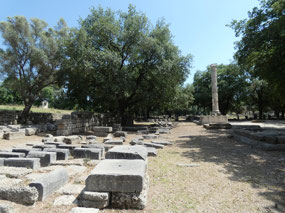
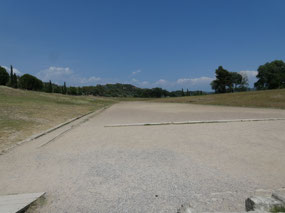
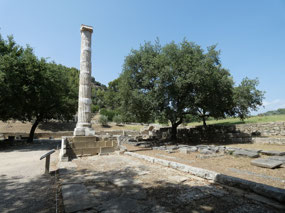
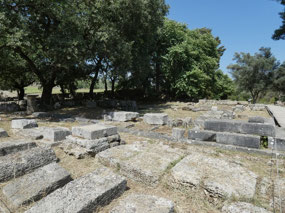
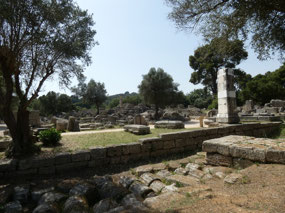
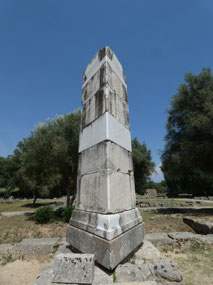
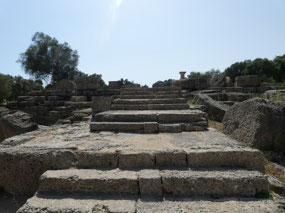
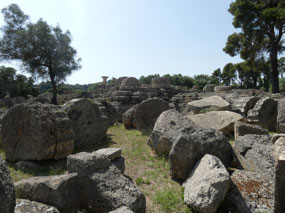
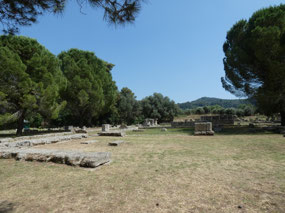
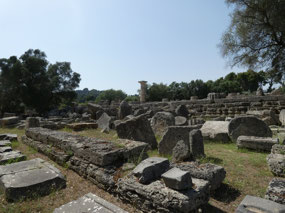
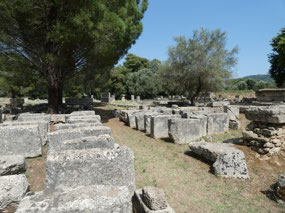
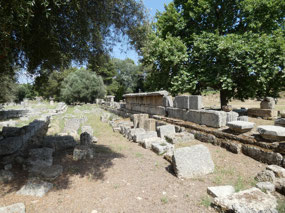
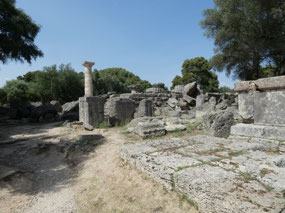
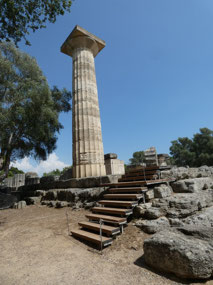
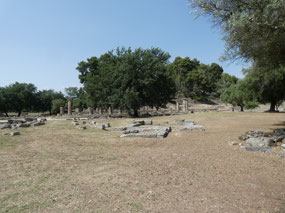
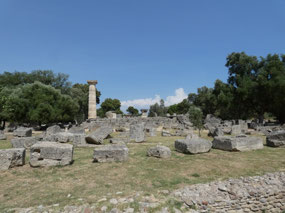
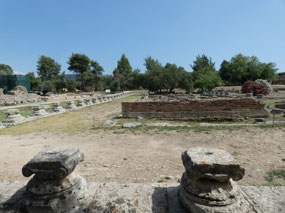
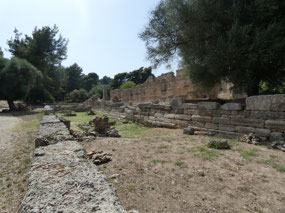
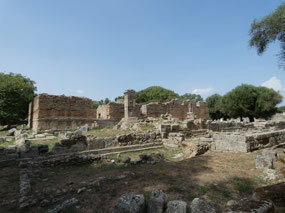
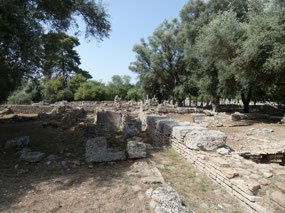
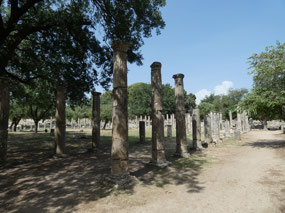
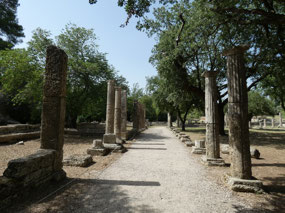
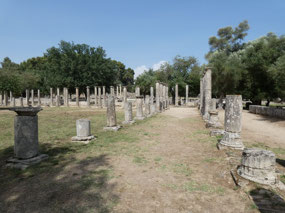
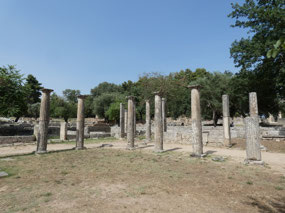
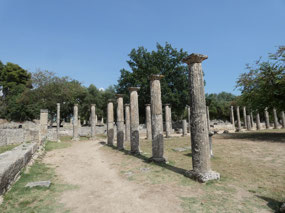
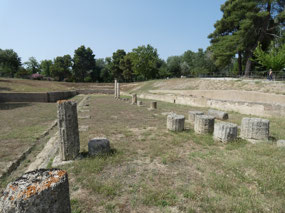
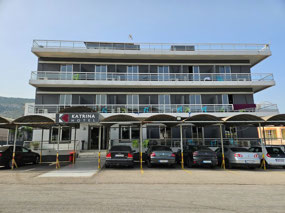
2025-05-23